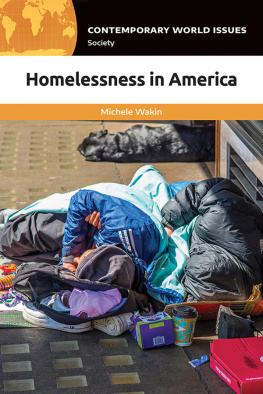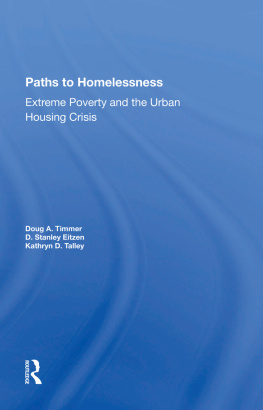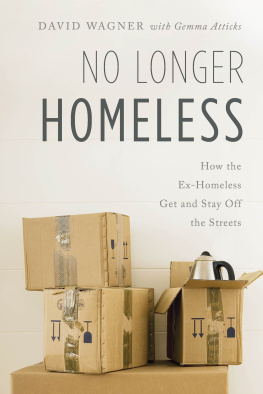
DISLOCATIONS
General Editors: August Carbonella, Memorial University of Newfoundland, Don Kalb, University of Utrecht & Central European University, Linda Green, University of Arizona
The immense dislocations and suffering caused by neoliberal globalization, the retreat of the welfare state in the last decades of the twentieth century, and the heightened military imperialism at the turn of the twenty-first century have raised urgent questions about the temporal and spatial dimensions of power. Through stimulating critical perspectives and new and cross-disciplinary frameworks that reflect recent innovations in the social and human sciences, this series provides a forum for politically engaged and theoretically imaginative responses to these important issues of late modernity.
Volume 1
Where Have All the Homeless Gone?: The Making and Unmaking of a Crisis
Anthony Marcus
Volume 2
Blood and Oranges: European Markets and Immigrant Labor in Rural Greece
Christopher M. Lawrence
Volume 3
Struggles for Home: Violence, Hope and the Movement of People
Edited by Stef Jansen and Staffan Lfving
Volume 4
Slipping Away: Banana Politics and Fair Trade in the Eastern Caribbean
Mark Moberg
Volume 5
Made in Sheffield: An Ethnography of Industrial Work and Politics
Massimiliano Mollona
Volume 6
Biopolitics, Militarism, and Development: Eritrea in the Twenty-First Century
Edited by David O'Kane and Tricia Redeker Hepner
Volume 7
When Women Held the Dragon's Tongue: and Other Essays in Historical Anthropology
Hermann Rebel
Volume 8
Class, Contention, and a World in Motion
Edited by Winnie Lem and Pauline Gardiner Barber
WHERE HAVE
ALL THE HOMELESS GONE?
The Making and Unmaking of a Crisis
Anthony Marcus
First published in 2006 by
Berghahn Books
www.berghahnbooks.com
2006, 2008, 2010 Anthony Marcus
Reprinted in 2008, 2010, 2011
First ebook edition published in 2012
All rights reserved.
Except for the quotation of short passages
for the purposes of criticism and review, no part of this book
may be reproduced in any form or by any means, electronic or
mechanical, including photocopying, recording, or any information
storage and retrieval system now known or to be invented,
without written permission of the publisher.
Library of Congress Cataloging-in-Publication Data
Marcus, Anthony, 1963-
/ Anthony Marcus.
p. cm. -- (Dislocations ; v. 1)
Includes bibliographical references and index.
ISBN 9781845450502 (alk. paper) -- 9781845451011 (pbk.) -- 9780857456960 (ebk.)
1. Homeless persons --New York (State) --New York. 2. Homeless persons --Government policy --New York (State) --New York. 3. Housing policy --New York (State) --New York. 4. New York (N.Y.) --Race relations. 5. New York (N.Y.) --Politics and government. 5. New York (N.Y.) --Economic policy. I. Title. II. Series.
HV4506.N6 M37 2005
362.509747'1--dc22
2005057041
British Library Cataloguing in Publication Data
A catalogue record for this book is available from the British Library
ISBN 978-1-84545-050-2 hardback
ISBN 978-1-84545-101-1 paperback
ISBN 978-0-85745-696-0 ebook
PREFACE
This monograph emerged from an extended process of personal, professional, and sociopolitical revolution and evolution. However, there were a few primary moments and principal people that provided a foundation and context for themes taken up in the following chapters.
The primary research began in 1989 on New York City's gentrifying Lower East side, when I convinced two colleagues who were also first year PhD students at the City University of New York (CUNY) to join me in a research practicum on housing loss and community activism. I had no idea at the time that any of this early research would enter my PhD thesis, become part of my later academic work, or form any part of a book written many years later.
Professor Leith Mullings provided intellectual support, professional contacts, and the academic credit points necessary to justify the huge amount of time that was taken out of our reading, writing, and discussing what counted as the anthropological canon at CUNY in the late 1980s. I remain grateful for her support and that of my two research colleagues in this first research project, Walter Ewing and Alfredo Gonzalez.
It is, of course, the case that the processes that yielded an American homeless crisis and the group of researchers who studied it was accretive and preceded, by many decades, my first days annoying tent dwellers and their neighbors and elected officials in Tompkins Square Park in 1989. However, if there is one moment that I would hold as the formative point when theory, history, and lived experience came together to create something new and dramatic that set the context for this monograph and the experiences that led me to research and write it, it was the first Tuesday in November 1980, when Jimmy Carter was voted out of the White House after one term. Though many of Carter's policies, such as his federal cost cutting and intensified cold war anticommunism that ended the Keynesianism and geopolitical dtente of the Nixon years were indistinguishable from those of his successor, Ronald Reagan, this seemingly smooth evolution belied what was an ideological and political revolution.
At the time I was a first year undergraduate and knew little about politics, ideology, and the state. However, I, and my freshman friends, who were all liberal democrats, understood, along with much of the rest of the country, that there were big changes in the air. From the moment that Jimmy Carter undermined the west coast electoral process by making his concession speech in advance of the polls closing, the auguries were fearful. Like the eighteen-year-olds that we were, we took the opportunity to get drunk and held a wake for democracy. The discussion focused on social concerns such as the end of the countercultural lifestyles and idealistic radical politics which had, since the late 1960s, been a birthright for many late teens. First and foremost, there were drugs, rock-and-roll music, and the sexual revolution that we were all looking forward to. We envisioned an army of Bible thumpers, moral majority conservatives, and public health officials concerned with the spread of herpes returning us to the 1950s.
The moral majority, in fact, came to our campus that year, and it was not long before young Republicans in suits and ties and dresses and pumps emerged from the shadows and filled university campuses across the nation with political arguments about the evils of affirmative action, multiculturalism, abortion, premarital sex, homosexuality, and welfare. There was a feeling among many of my professors and fellow students that the world of popular protest, countercultural lifestyles, attenuating moral codes in cinema, timid Us foreign policy, and leftist idealism that had been the harvest of the post-vietnam years was suddenly ending. The night of long knives that was the Reagan Revolution had arrived and we were suddenly all dressed up, with nowhere to go.








